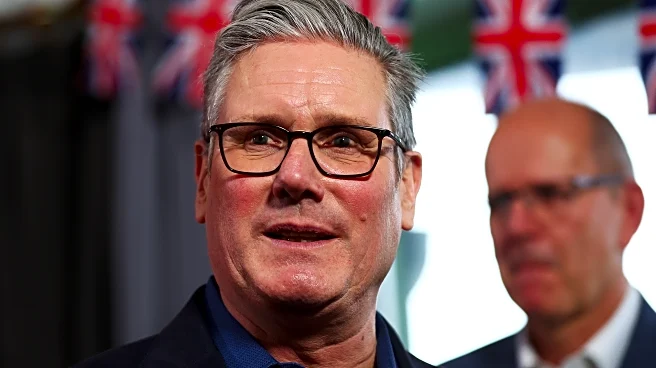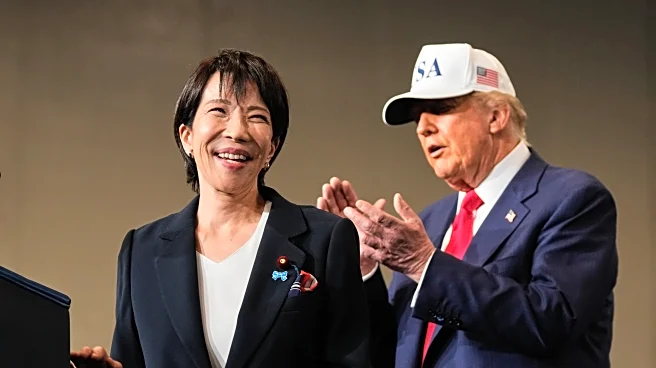Rapid Read • 8 min read
Consumer confidence in the United States experienced a slight decline in August, according to the Conference Board. The consumer confidence index fell by 1.3 points to 97.4, erasing some gains from the previous month. This decline follows a weak jobs report and the implementation of new tariffs by President Trump. Despite a lower-than-expected inflation report easing concerns about tariff-induced price increases, underlying inflation has ticked up. The consumer confidence index, which is a key indicator of economic outlook, has remained relatively stable over the past three months. Additionally, President Trump has moved to fire Federal Reserve Governor Lisa Cook, accusing her of mortgage fraud, although Cook has stated that Trump lacks the authority to remove her from her position.
AD
The decline in consumer confidence is significant as consumer spending accounts for approximately two-thirds of U.S. economic activity. A decrease in confidence can signal potential challenges for economic growth. The recent economic indicators, including a slowdown in GDP growth and a cooling labor market, suggest the possibility of an economic slowdown. However, some aspects of the economy, such as corporate earnings and overall inflation rates, remain resilient. The Federal Reserve faces a complex situation with the dual mandate of maximizing employment and controlling inflation, especially in light of tariff-driven price increases.
Federal Reserve Chair Jerome Powell has indicated that the central bank may consider adjusting its policy stance, potentially through an interest rate cut, due to the shifting balance of risks. The ongoing economic developments, including the impact of tariffs and labor market conditions, will likely influence future monetary policy decisions. Stakeholders, including businesses and policymakers, will be closely monitoring these indicators to assess the potential need for further economic interventions.
The attempt by President Trump to remove Federal Reserve Governor Lisa Cook raises questions about the independence of the Federal Reserve and the legal precedent for such actions. The situation highlights the potential for political influence on economic institutions and the importance of maintaining their autonomy to ensure unbiased economic policy decisions.
AD
More Stories You Might Enjoy












